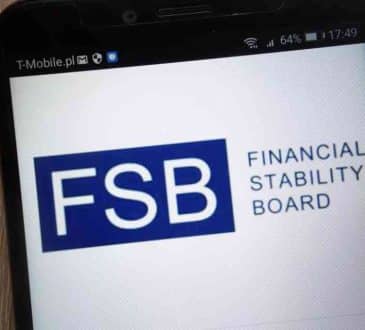Elon Musk, Twitter and The New Deal in Corporate Takeovers

Corporate governance and proxy issues are just newsworthy. That’s why the popular media obsession with Elon Musk’s campaign against Twitter is as fascinating as the takeover battle itself . The high-level, back and forth between Musk and the Twitter board brought daily shocks and counter moves, enough to even distract us from war in Ukraine. At the moment, the Twitter board has agreed to a deal, although details and legal surprises may still arise.
But the Elon Musk/Twitter dance ia even more noteworthy as a governance milestone. It is a culmination of recent business, stakeholder, online media, and even show biz trends, playing out in what was once the sleepiest domain of business – investor relations. Further, it shows how these trends are tearing apart our assumptions on the way proxy battles work in this new corporate and social reality.
Certainly, swashbuckling activist investors have long gained fame in the narrow precincts of corporate governance for their takeover battles. None of these raiders, however, begin to compare to Elon Musk. A pot-smoking, ADD, rocket man, the real-world Tony Stark — as the world’s richest life form, Musk feels entitled to write his own activist rules — and did he ever. Until 2022, corporate raiders approached their campaigns slowly, incrementally and most of all, quietly. Carl Icahn does most of his work behind the scenes, and his public statements on a target are rarely broadcast beyond the business media. Elon Musk used Twitter itself as a medium for his campaign, and news coverage worldwide hung on his every Tweet.
Second, most takeovers target a company on specific metrics – declining market share or profits, a failing strategy, or such. While Twitter’s stock price has lagged over the past couple of years, everything suggests that this was only an afterthought to Musk. The primary beef he cited was what he viewed as censorship and unfairness in its algorithms, turbocharged by his own restlessness. Only as his campaign progressed did Musk mention Twitter failing to capture value, or the weak stock ownership of Twitter directors. Traditional activists use these metrics as a jumping off point for campaigns, but Musk was selling the sizzle long before he ever mentioned the steak.
Musk’s astonishing tech wealth also fueled his attack in an uncharted way. Traditional raiders may methodically accumulate two or three percent of a company over time, carefully stalking their prey. They then knock on the boardroom door hoping to seek attention. Musk quickly accumulated over nine percent of Twitter, a huge stake for a large public company. Such investment demands instant respect, and typically the offer of at least one board seat (an offer which Musk, in another offbeat move, declined).
Speaking of the Twitter board, while it may have been poor mouthed by Elon Musk, it is actually a prototype of the modern, diverse board of directors. Members other than Jack Dorsey collectively own less than one percent of outstanding stock, true, but this level of board equity holding is actually on the high side for a large tech unicorn. Board tenure and turnover meet best practices, and the gender and ethnic diversity of membership is outstanding. Yet ticking all the governance social responsibility boxes seemed to do Twitter little good.
Less noticed in Musk’s Twitter coup is the groundbreaking role of stakeholder governance. Employees of target companies of course worry that the barbarians, after invading the castle, will then impose mass firings. Instead, Twitter employees spoke from the new stakeholder perspective, which is often driven by environmental, social and governance (ESG) concerns. They have gone public complaining about Musk himself, his personal style, and new power to shape dialogue and open the platform to voices who offend their politics. This employee stakeholder voice will prove a new X factor in conducting future takeover campaigns, so expect all sides to work on tactics for drafting it as a public pressure tool.
Finally, the whole Twitter/Musk circus is a preview of how media, popular culture, and celebrity will upend the rules of investor activism. Twitter is a pervasive shared voice and debate platform in much of the world, with over 1.3 billion users. Everyone Tweets… but no one loves it. We all complain about its toxicity, politics, and manipulation. As with so much of our social media (and our giant tech companies overall), this ubiquity has not bought support, but rather nurtured resentment. Musk gained momentum by presenting himself as a populist reformer opening up Twitter.
The unspoken truth of Elon Musk’s Twitter takeover is that he has done for proxy activism what Donald Trump did for politics, and corporate governance will never be the same. As with President Trump, Elon Musk might discover that brash innovation in gaining a victory may not bring success in administering it.
Written by Ralph Ward.
Have you read?
The power of one:ones – asking the big questions of your leaders by Kerry Swan.
Shift Happens: Crossing the Ethics Threshold by Chance or by Choice by Christopher Gilbert, Ph.D.
6 ways to turn meetings from a cost into an asset by Alan Manly.
Is It Time to Integrate Greater Healthcare Experience into Your Board by Jena Abernathy.
Add CEOWORLD magazine to your Google News feed.
Follow CEOWORLD magazine headlines on: Google News, LinkedIn, Twitter, and Facebook.
Copyright 2024 The CEOWORLD magazine. All rights reserved. This material (and any extract from it) must not be copied, redistributed or placed on any website, without CEOWORLD magazine' prior written consent. For media queries, please contact: info@ceoworld.biz








